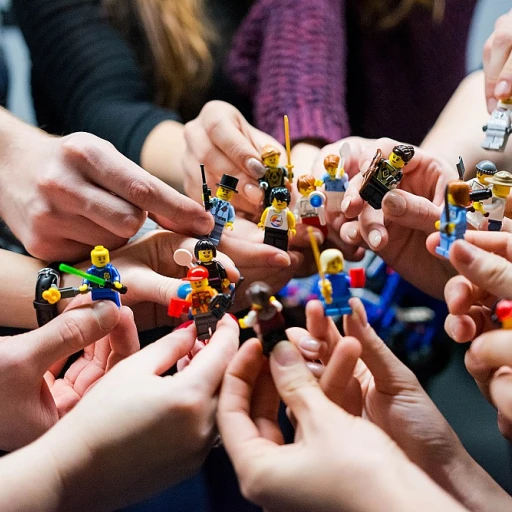
Understanding Marine Biotechnology
The Fascinating Field of Marine Biotechnology
Marine biotechnology represents a captivating intersection of marine science and biotechnology, making it a unique field for aspiring professionals. This area focuses on the exploration and utilization of ocean resources to develop new products and processes, contributing to sectors such as pharmaceuticals, environmental conservation, and food production. By harnessing the remarkable properties of marine life and marine organisms, biotechnologists are paving the way for sustainable innovations.
With the world's oceans harboring an unparalleled diversity of species, marine biotechnologists are key players in unlocking the potential of these resources. From developing drugs derived from marine organisms to advancing marine conservation efforts, professionals in this field are making significant contributions to both industry and environmental protection.
The scope of marine biotechnology extends beyond mere research; it involves project management and collaboration with various stakeholders, including government agencies and industry partners. This aspect of the career adds depth and can be a defining element of one’s professional journey, requiring a blend of innate curiosity and practical expertise.
As a promising career path, it offers not only the opportunity to work at the forefront of science but also the chance to make a meaningful impact on wildlife conservation and sustainability. For those considering a career transition into this field, understanding the nuances of marine biotechnology is crucial. As we delve further into this post, we'll explore the essential skills, qualifications, and job roles that define this vibrant industry, offering valuable career advice for individuals eager to engage with our blue planet.
Skills and Qualifications Required
Essential Expertise and Education
Stepping into the marine biotechnology field requires a solid foundation in biology, particularly marine biology. The unique focus on ocean life and the marine organisms you will work with necessitates a strong understanding of basic biological principles. It's similar to the knowledge you'd gain from a master degree in biology or marine science.
In addition to educational qualifications, expertise in areas such as molecular biology, environmental science, and biochemistry can be particularly beneficial. Such skills offer a competitive edge when applying for jobs in marine conservation or research projects focusing on wildlife conservation and sustainable practices.
Required Competencies and Experience
Apart from academic qualifications, marine biotechnologists benefit from practical experience in laboratory settings, involving techniques like DNA sequencing and bioinformatics. These skills are key to success in research- or project-based career paths.
Furthermore, gaining experience through internships or volunteer work with government agencies and environmental organizations can provide hands-on exposure to real-world applications. This type of experience is invaluable, offering insights into ocean ecosystems and blue economy initiatives that not only bolster your resume but also enhance your understanding of marine and biotechnology fields.
Focus on Continuous Learning and Adaptation
Keeping abreast with the latest developments in marine conservation and biotechnology is crucial. Engaging in professional development activities such as workshops and conferences keeps your knowledge up to date. It's an ever-evolving field that demands a commitment to lifelong learning to stay ahead.
By understanding these skills and qualifications, aspiring candidates can better navigate their transition into the marine biotechnology sector. As this field continues to grow and evolve, your role in promoting sustainable practices through marine derived technologies could indeed become a rewarding long-term career path.
To deepen your understanding and access innovative strategies applicable to advancing your skills, consider exploring additional resources and professional exchanges.
Career Paths and Job Roles
Exploring Exciting Roles in the Oceanic Field
Diving into the vast realm of marine biotechnology can unveil a spectrum of exciting career paths and job roles, each contributing uniquely to the protection and exploration of our oceans. This field isn't just a lifeline for marine life conservation but also offers promising salary prospects.
One of the primary roles in this domain is that of a marine biotechnologist, focusing on discovering and developing products derived from marine organisms. These professionals apply their expertise in biology marine science to innovate and support industries like pharmaceuticals, agriculture, and environmental science.
Another critical path involves becoming a marine biologist, which includes responsibilities ranging from research on marine life to working with conservation projects and wildlife rescue missions. Here, understanding ocean life and its sustainability comes to the forefront.
If you're inclined towards policy and governance, roles in government agencies could be a promising venture. These jobs might focus on developing regulations to ensure the conservation of marine environments and resources.
Lastly, interdisciplinary roles that blend marine science with technology, such as project management in marine conservation, offer rich experiences in coordinating blue projects that aim at preserving biodiversity and ensuring sustainable use of ocean resources.
The journey across these career paths can be challenging but rewarding. Having a solid educational foundation, such as a master's degree in marine biology or a related field, often opens doors to higher-level positions and a permanent place in the workforce.
For more career advice on navigating these opportunities, reflecting on your strengths and aligning them with the roles that interest you will be essential in anchoring your career in marine biotechnology.
Challenges in Transitioning to Marine Biotechnology
Overcoming the Obstacles to Success
Transitioning into the field of marine biotechnology presents a unique set of challenges that aspiring professionals need to navigate. While this exciting career pathway offers opportunities to work closely with marine organisms and contribute to marine conservation, the path is not without its hurdles. Firstly, one of the major challenges is acquiring the necessary skills and qualifications. Many jobs in this field require a strong foundation in biology, chemistry, and marine science. A master's degree in marine biology or a related field is often essential to secure more advanced positions. Gaining this level of education may require several years of dedication and study. Moreover, gaining practical experience is crucial. Many employers look for candidates with hands-on experience in marine research or project management. For individuals coming from different sectors, gaining relevant work experience might involve starting with internships or temporary positions before moving to more permanent roles. Networking becomes vital in overcoming these challenges. Building connections with professionals already working in marine biotechnology can open doors to job opportunities and provide valuable career advice. Being active in marine and environmental conferences, workshops, and seminars is beneficial in establishing a professional network. Another hurdle is the relatively high level of competition for jobs in marine biotechnology. This field attracts many talented individuals passionate about ocean life and wildlife conservation. As such, applicants must demonstrate a real commitment to advancing marine science and conservation efforts. However, the rewards can be significant in terms of both job satisfaction and salary. While entry-level salaries may start lower, the potential for growth is substantial as you gain experience and move into specialized roles. In summary, while transitioning to a career in marine biotechnology can be challenging, with the right qualifications, networking, and perseverance, it can lead to a fulfilling and impactful career contributing to ocean and wildlife conservation efforts.Networking and Professional Development
Building Connections and Advancing Skills
Networking and professional development play a pivotal role in transitioning to a career in marine biotechnology. In this field, establishing a robust network within the circles of marine science and biotechnology can open doors to numerous career opportunities and provide insights into industry developments. To cultivate meaningful connections, consider the following strategies:- Join Professional Organizations: Becoming a member of organizations dedicated to marine biology and biotechnology can enhance your access to industry events, seminars, and publications. These organizations often hold conferences and workshops that allow for direct interaction with professionals in jobs related to ocean life and marine conservation.
- Engage in Online Communities: Many online platforms offer forums and discussion groups for professionals in marine sciences. Engaging in these spaces facilitates the sharing of career advice, project ideas, and conservation strategies, all of which can enrich your understanding of the field.
- Volunteer for Marine Conservation Initiatives: Participating in marine conservation efforts not only contributes to the preservation of ocean ecosystems but also connects you with individuals passionate about marine wildlife. This exposure can lead to collaborations and job opportunities in permanent positions related to marine life conservation and biotechnology.
- Pursue Continuous Learning: Professionals in marine biotechnology benefit from lifelong learning. Staying abreast of new technologies, methodologies, and research findings is essential. Obtaining advanced qualifications, such as a master degree in marine biology or related fields, can significantly bolster your expertise and salary prospects.













